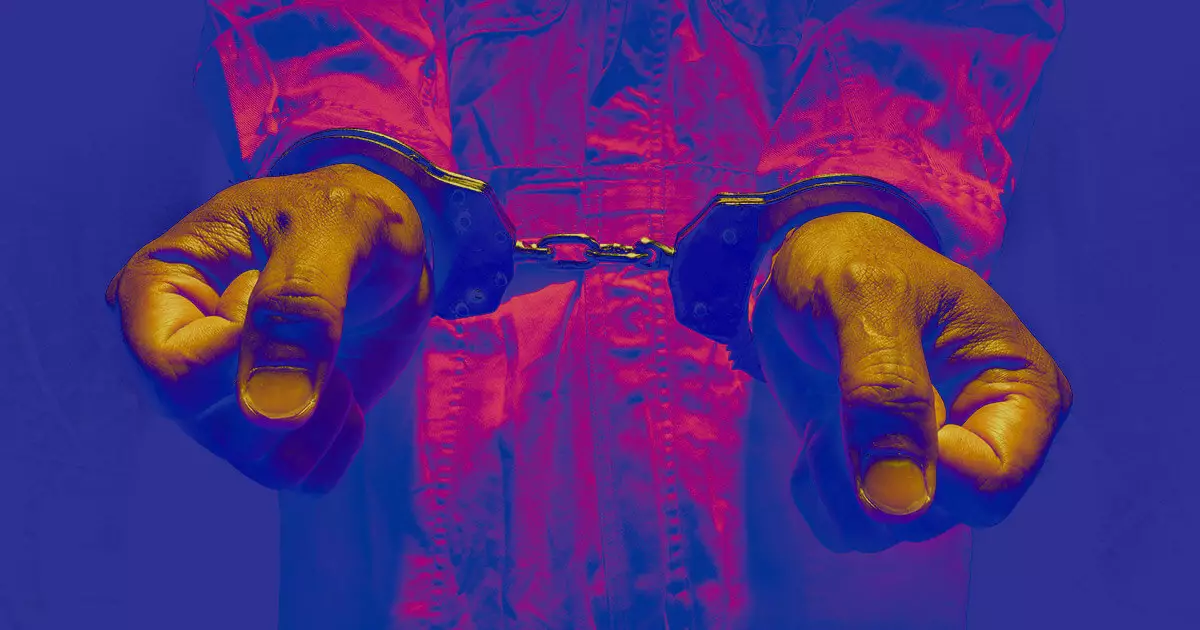The digital landscape, particularly in the realm of cryptocurrencies, has increasingly become a breeding ground for criminal activity. The recent arrest of Aleksej Besciokov, co-founder of the notorious Garantex exchange, exemplifies this grim reality. With allegations of laundering a staggering $7 billion through unregulated channels, it is vital to analyze how such events not only reflect on the man but also on the industry’s shallow attempts to regulate itself. The case isn’t just about one individual; it raises questions about the accountability and ethics of an industry that seems to thrive in the shadows while most remain blissfully unaware.
Under the Radar: The Rise of Garantex
Launched with the promise of revolutionizing finance, Garantex quickly morphed into a vehicle for facilitating illicit transactions, thus drawing the attention of global law enforcement agencies. It’s crucial to understand that Garantex was not just a financial platform but also a hub for underserved criminal elements in the expansive underbelly of the internet. The situation escalated swiftly with the US Treasury’s designation of the exchange as a high-risk entity last year.
What’s telling about this case is the operational sophistication of Garantex, which allegedly served as a conduit for various forms of cybercrime, from drug trafficking to ransomware payments. It underscores a glaring failure in regulatory frameworks that so eagerly tout innovation while neglecting safety and accountability. This is where I feel the industry must step up and take responsibility; regulatory bodies should work hand-in-hand with these exchanges to ensure ethical conduct, rather than letting them act as rogue entities.
The Role of Global Cooperation
Despite being miles apart, the collaboration between Indian authorities and the U.S. highlights a rudimentary but effective model for combating global financial crime. Interpol’s involvement with the issuance of a Red Notice for Besciokov reflects the urgency and transnational nature of such crimes. However, it’s disheartening that it only took the exposure of billions in illicit transactions for law enforcement to mobilize at this level. This reactive approach spells trouble for the future of cryptocurrency, indicating that self-regulation has failed miserably.
It is also worth noting that while Besciokov faces extradition to the U.S., his associate, Aleksandr Mira Serda, remains at large. This further complicates the narrative and suggests a larger network of criminality that could continue to operate undisturbed unless authorities act swiftly and decisively to unravel it.
Public Perception and Preventative Measures
The general public tends to view cryptocurrency as a mirage of wealth and opportunity, but stories like Besciokov’s should serve as a wake-up call. The sensationalism surrounding profits in the crypto world often overshadows the risks and realities involved. If anything, this incident should provoke a robust dialogue about the need for stringent measures to deter financial crimes.
Regulatory bodies must reassess their strategies, balancing innovation with public safety. While it is essential to foster a space that fuels technological advancement, it should never come at the cost of vulnerability to cybercriminals. This incident is not merely a cautionary tale; it could be viewed as a blueprint for what needs to change in regulatory infrastructures globally.
The case of Garantex reflects a darker side of the promising cryptocurrency realm. The stakes are high, and so are the consequences. Immediate reforms and global cooperation are not just necessary; they are imperative.

